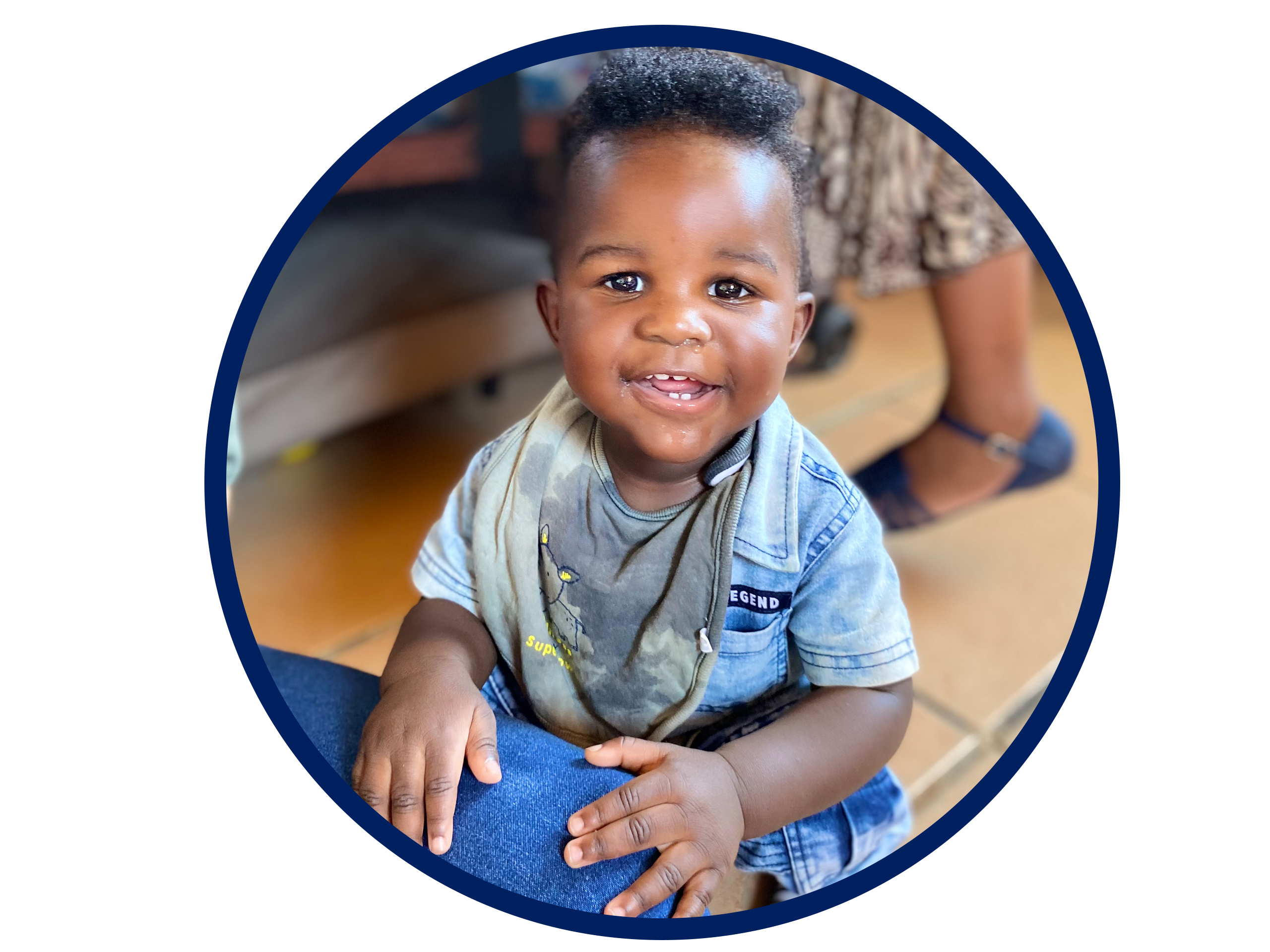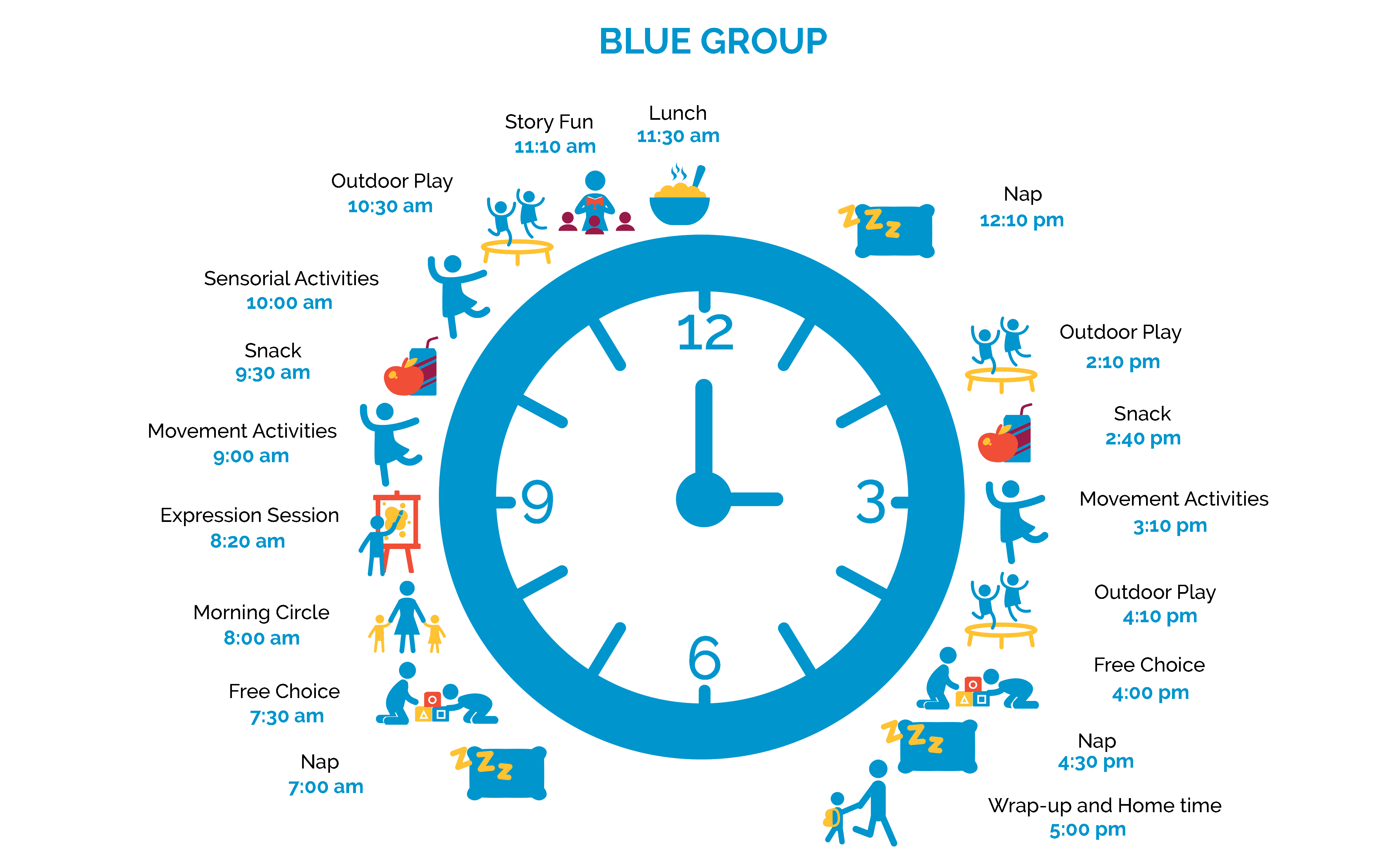
Blue Group: Turning One
Babies can start in blue group as early as 3-months and our nurturing carers will support them in their journey from wriggling to walking – helping them to expand their little worlds!
Development and Learning Objectives for Blue Group Babies:
Language, Literacy and Creative Expression
Maths and Scientific Reasoning
Physical, Social and Emotional well-being
Language, literacy and creative expression
Creative Expression
1. Engages in music, art and dramatic play
a. Sings along and copies actions during songs
b. Independently makes rhythmic / melodic sounds using found objects and musical instruments
Oral Language Development
2. Receptive and expressive vocabulary development
a. Gurgles and coos
b. Looks towards the person speaking to them, uses pointing and other gestures to convey meaning
c. Babbles word-like sounds
d. Responds to own name
e. Uses simple words “mama”, “hi”, ” bye-bye”
3. Coherent expression of personal ideas, thoughts, and feelings
a. Claps in excitement, shakes head to communicate “no” or refusal
b. Nods heads “yes“, blows kisses and gives high fives
c. Uses gestures and sounds to convey comprehension (when spoken to) and meaning (when responding).
d. Attempts at communication through speech are understandable at the time.
Emergent Literacy
4. Response to text
5. Phonological Awareness
6. Phoneme-grapheme correspondence
Emergent Writing
7. Print awareness / concepts
8. Tracing, transcription and writing
Maths and Scientific Reasoning
Quantitative Concepts
9. Estimation
10. Verbal and object counting
a. Counts in a ‘sing-song’ fashion up to 5 (imitates teacher counting objects).
11. Numeral recognition, depiction and quantity correspondence
12. Relative magnitude and Measurement
Geometry and Spatial Relationships
13. Shape recognition and manipulation
14. Position, Directions and Time
Reasoning
15. Classification
16. Planning
17. Hypothesis Formation
Physical and social emotional wellbeing
Social Emotional Development
18. Self-regulation
a. Seeks help and soothing from adults
b. Self-soothes when upset; does not lash out on others
c. Says “no” or shakes head when doesn’t want something
d. Able to differentiate between and express personal needs eg. toileting or thirst
e. Plays alongside peers (parallel play)
Response to expectations
a. Pays attention and copies/mimics basic actions
b. Listens to and follows reasonable direct requests from teacher
20. The positive sense of self and cultural identity
21. Persistence in the face of challenges
a. Displays willingness to attempt new tasks with support/prompting (doesn’t always return to the same toy/game)
Physical Development
22. Gross motor coordination
a. Neck control is established
b. Rolls from supine to side and back
c. Starts weight bearing on arms and kicks legs while on their tummy.
d. Starts to use both legs and arms to propel forward
e. Able to sit with back support
f. Able to sit without back support without fatiguing
g. Start to pull themselves up against furniture, stands
h. Crawls and/or shuffles
i. Takes a few steps, poor co-ordination
j. Walks independently
23. Fine motor coordination
a. Finger thumb opposition (touches thumb to all other fingers one at a time)
b. Plays with toys at midline, transfers hand to hand
c. Uses index finger to point at objects and toys
d. Squeezes sponge or hand or other soft object
e. Manipulates blocks, sand, play-dough, etc. to build multi-level structures
Blue group daily routine

Special supports for Blue Group children and families:
- Sleep Cycles:
- Weaning